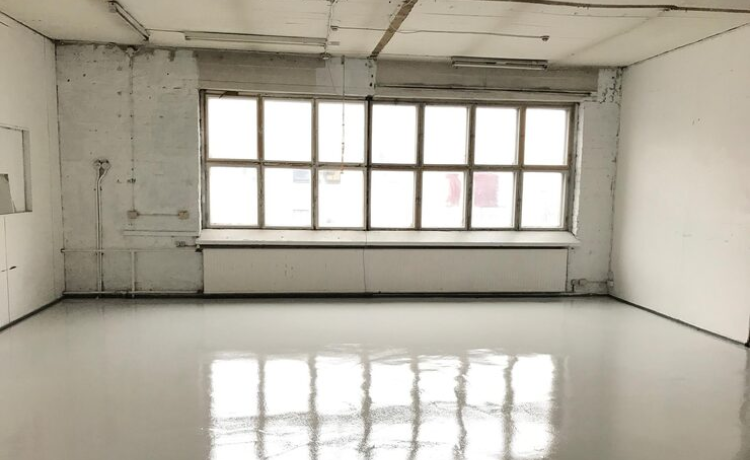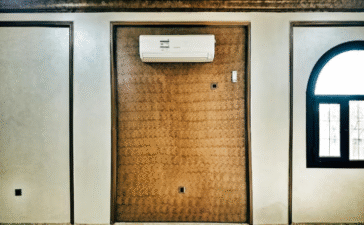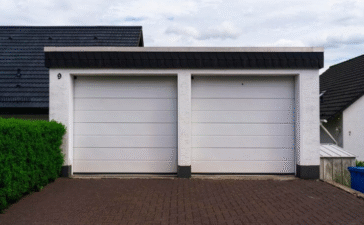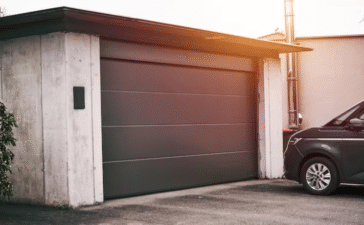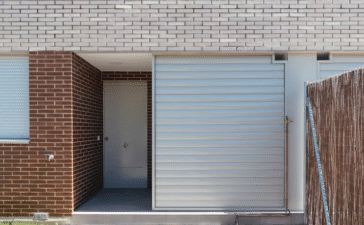Transforming your garage with an epoxy floor coating can dramatically enhance both the functionality and appearance of one of your home’s most utilized spaces. Whether you’re looking to create a showroom-worthy finish for your classic car collection or simply want a durable, easy-to-clean surface for your workshop, understanding epoxy garage floor cost is essential for making an informed investment decision.
Epoxy flooring has gained tremendous popularity among homeowners due to its impressive durability, chemical resistance, and aesthetic versatility. From basic clear coatings to stunning metallic finishes, epoxy offers solutions for every budget and style preference. However, the wide range of options and installation methods can make pricing seem confusing at first glance.
This comprehensive guide breaks down everything you need to know about epoxy garage floor pricing, from material costs and labor expenses to hidden fees and long-term value considerations. You’ll discover the key factors that influence pricing, learn when DIY installation makes sense versus hiring professionals, and understand how epoxy compares to alternative flooring options in terms of both upfront costs and lifetime value.
By the end of this article, you’ll have the knowledge needed to budget accurately for your epoxy garage floor project and make the choice that best fits your needs and financial situation.
What is Epoxy Flooring?
Epoxy flooring consists of a two-part system combining resin and hardener that creates an extremely durable, chemical-resistant surface when applied over concrete. This coating penetrates into the pores of concrete, creating a bond that’s often stronger than the concrete substrate itself.
The three primary types of epoxy garage floor systems include clear epoxy, which provides a glossy protective coating while maintaining the natural concrete appearance; metallic epoxy, which incorporates metallic pigments to create stunning, marble-like patterns; and decorative epoxy featuring colored flakes or chips that provide texture and visual interest while helping hide imperfections.
Epoxy garage floors offer numerous advantages that justify their growing popularity. The surface resists stains from oil, chemicals, and other automotive fluids, making cleanup as simple as mopping with soap and water. The coating’s durability means it can withstand heavy foot traffic, dropped tools, and vehicle weight without showing wear. Additionally, the high-gloss finish reflects light, brightening your garage space significantly.
Epoxy Garage Floor Cost Breakdown: What to Expect
National averages for epoxy garage floor installation typically range from $3 to $12 per square foot for professional installation, with most homeowners paying between $4 and $8 per square foot. A standard two-car garage covering approximately 400 to 500 square feet generally costs between $1,600 and $4,000 for complete professional installation.
Regional pricing variations can be significant, with metropolitan areas like Los Angeles, New York, and Chicago commanding premium rates due to higher labor costs and increased demand. Conversely, rural areas and regions with lower costs of living may see prices 20 to 30 percent below national averages.
DIY installation costs range from $1 to $3 per square foot for materials alone, making a typical two-car garage project cost between $400 and $1,500. However, this doesn’t account for the tools, time, and potential mistakes that could increase costs significantly.
The cost per square foot varies considerably based on the epoxy type selected. Basic clear epoxy coatings start around $1 to $2 per square foot for materials, while premium metallic epoxy systems can cost $8 to $15 per square foot just for materials. Professional labor typically adds $2 to $6 per square foot depending on surface preparation requirements and regional labor rates.
Factors That Influence Epoxy Garage Floor Cost
Garage size represents the most obvious cost factor, but economies of scale mean larger garages often enjoy better per-square-foot pricing. A single-car garage covering 200 to 250 square feet might cost $800 to $2,000 professionally installed, while a three-car garage spanning 600 to 750 square feet could range from $2,400 to $6,000, representing better value per square foot.
Surface preparation requirements significantly impact total project costs and can account for 30 to 50 percent of professional installation expenses. Concrete surfaces requiring minimal cleaning and minor crack repair add relatively little to base costs. However, floors needing extensive crack repair, oil stain removal, or concrete grinding to achieve proper profile can increase costs by $1 to $4 per square foot.
The type of epoxy system selected dramatically affects pricing. Standard solid-color epoxy represents the most economical option, while metallic epoxy flooring cost can be three to four times higher due to specialized materials and application techniques. Decorative flake systems fall somewhere in the middle, offering enhanced aesthetics at moderate price increases.
Geographic location influences both material availability and labor costs. States like California, New York, and Massachusetts typically see higher installation costs due to elevated living costs and stricter regulations. Conversely, states in the Midwest and South often offer more competitive pricing while maintaining quality standards.
DIY vs Professional Epoxy Garage Floor Installation: Which is Cheaper?
DIY epoxy garage floor installation can reduce costs by 50 to 70 percent compared to professional installation, but requires significant time investment and carries risks of poor results. Quality DIY kits range from $100 to $500 for a two-car garage, depending on the system chosen and square footage covered.
The DIY process involves thoroughly cleaning the concrete, repairing cracks and imperfections, acid etching or grinding the surface for proper adhesion, mixing and applying the epoxy coating, and allowing proper cure time. This process typically requires an entire weekend and specific weather conditions for optimal results.
Professional installation offers several advantages that justify the additional expense. Contractors bring specialized equipment for surface preparation, experience in proper mixing ratios and application techniques, and warranties on both materials and workmanship. Professional results typically last longer and look better than DIY installations.
When comparing total costs, DIY installations might save $1,000 to $3,000 on a typical two-car garage project. However, failed DIY installations requiring professional remediation can cost more than hiring professionals initially. Consider your skill level, available time, and tolerance for potential mistakes when deciding between approaches.
Additional Costs to Consider
Surface preparation and repair costs often surprise homeowners who assume their concrete is installation-ready. Professional concrete cleaning ranges from $0.50 to $1.50 per square foot, while crack repair adds $2 to $5 per linear foot depending on severity. Concrete grinding or shot blasting for proper surface profile can cost $1 to $3 per square foot but ensures optimal adhesion.
Maintenance costs for epoxy garage floors remain minimal compared to other flooring options. Annual cleaning supplies cost less than $50, while periodic re-coating every 5 to 10 years might cost $1 to $3 per square foot. This represents significant savings compared to replacing other flooring materials.
Optional upgrades can enhance both appearance and functionality but increase project costs. Decorative color flakes add $0.50 to $1.50 per square foot, while anti-slip additives cost $0.25 to $0.75 per square foot. High-performance topcoats for enhanced chemical resistance or UV stability can increase costs by $1 to $2 per square foot.
Cost of Epoxy Flooring vs Other Garage Flooring Options
Comparing epoxy vs concrete flooring reveals significant long-term value differences. While bare concrete requires minimal upfront investment, it remains porous, stains easily, and generates dust that settles on vehicles and stored items. The cost of sealing and maintaining concrete over time often exceeds epoxy installation costs.
Garage tiles and interlocking mats offer quick installation and modest upfront costs ranging from $2 to $6 per square foot. However, these systems trap moisture and debris underneath, can shift over time, and typically need replacement every 5 to 7 years, making long-term costs comparable to or higher than epoxy.
Polyurethane and polyaspartic flooring systems offer similar durability to epoxy but at higher costs. Polyaspartic floors cost 20 to 40 percent more than comparable epoxy systems but cure faster and offer better UV resistance. Polyurethane falls between epoxy and polyaspartic in both cost and performance characteristics.
Long-Term Value and Durability: Is Epoxy Flooring Worth the Investment?
Properly installed epoxy garage floors typically last 10 to 20 years with minimal maintenance, significantly longer than most alternative flooring options. Factors affecting lifespan include quality of surface preparation, epoxy system chosen, garage usage patterns, and maintenance consistency.
The cost-effectiveness of epoxy becomes apparent when comparing total ownership costs over time. While initial installation costs more than basic alternatives, the combination of durability, low maintenance requirements, and enhanced functionality provides excellent value. Many homeowners find their epoxy floors look nearly new after a decade of use.
Return on investment considerations include both practical benefits and potential home value increases. Real estate professionals report that well-maintained epoxy garage floors appeal to buyers and can contribute to faster home sales. The professional appearance and obvious quality suggest overall home maintenance attention.
Also Read: “air con garage“
Making the Right Choice for Your Garage Floor Investment
Selecting the right epoxy garage floor solution requires balancing your budget, aesthetic preferences, and long-term goals. Consider factors like garage usage patterns, climate conditions, and whether you plan to sell your home in the near future when making decisions about epoxy type and installation method.
Budget-conscious homeowners might start with a basic epoxy system and upgrade later, while those seeking maximum durability and appearance should invest in higher-quality materials and professional installation from the beginning. Remember that cutting corners on surface preparation or choosing inferior materials often leads to disappointing results and higher long-term costs.
The importance of choosing qualified contractors cannot be overstated for professional installations. Research potential contractors thoroughly, verify licensing and insurance, and request references from recent projects. Quality installation makes the difference between a floor that lasts decades and one requiring expensive repairs within a few years.
Frequently Asked Questions
How long does an epoxy garage floor last?
Professionally installed epoxy garage floors typically last 10 to 20 years with proper maintenance. DIY installations generally last 5 to 10 years depending on application quality and usage patterns. Factors affecting longevity include surface preparation quality, epoxy system type, garage usage intensity, and maintenance consistency. High-traffic garages or those used for heavy automotive work may see shorter lifespans, while residential garages with light use often exceed expected durability ranges.
Can I install an epoxy garage floor myself?
DIY epoxy garage floor installation is possible but requires careful attention to surface preparation, weather conditions, and application techniques. Success depends on your skill level, available time, and willingness to follow instructions precisely. Surface preparation represents the most critical step and often determines long-term success. Consider hiring professionals if your concrete has significant damage, oil stains, or if you lack experience with similar projects.
What are the most cost-effective types of epoxy for garage floors?
Standard clear or solid-color epoxy systems offer the best value for budget-conscious homeowners, providing excellent durability and functionality at minimal cost. These systems typically cost $3 to $6 per square foot professionally installed. Decorative flake systems offer enhanced aesthetics at moderate price increases, while metallic epoxy represents a premium option with correspondingly higher costs but stunning visual results.
Do I need to prepare the surface before installing epoxy?
Proper surface preparation is absolutely essential for successful epoxy installation and represents the most important step in the entire process. Concrete must be clean, dry, and properly profiled for epoxy adhesion. This typically involves thorough cleaning, crack repair, and either acid etching or mechanical abrading to create the proper surface profile. Skipping or inadequately performing surface preparation leads to adhesion failure and costly repairs.
How much does it cost to epoxy a 2-car garage?
A typical two-car garage covering 400 to 500 square feet costs between $1,600 and $4,000 for professional epoxy installation, depending on the epoxy system chosen and surface preparation requirements. DIY installation of the same area ranges from $400 to $1,500 for materials. Additional costs for extensive surface preparation, repairs, or premium epoxy systems can increase these ranges significantly.
What factors increase epoxy garage floor installation costs?
Several factors can significantly increase installation costs beyond base pricing. Extensive surface preparation including crack repair, oil stain removal, or concrete grinding can add $1 to $4 per square foot. Premium epoxy systems like metallic finishes cost substantially more than basic options. Geographic location affects labor costs, with metropolitan areas typically charging premium rates. Additional features like decorative elements, anti-slip additives, or special topcoats also increase total project costs.
How does epoxy garage floor cost compare to other flooring options?
Epoxy garage floor cost falls in the middle range compared to other permanent flooring solutions. While more expensive initially than basic concrete sealing or temporary solutions like mats, epoxy offers superior long-term value through durability and low maintenance requirements. Compared to premium options like polyaspartic or specialized tile systems, epoxy provides similar performance at lower costs, making it an excellent balance of affordability and quality.
